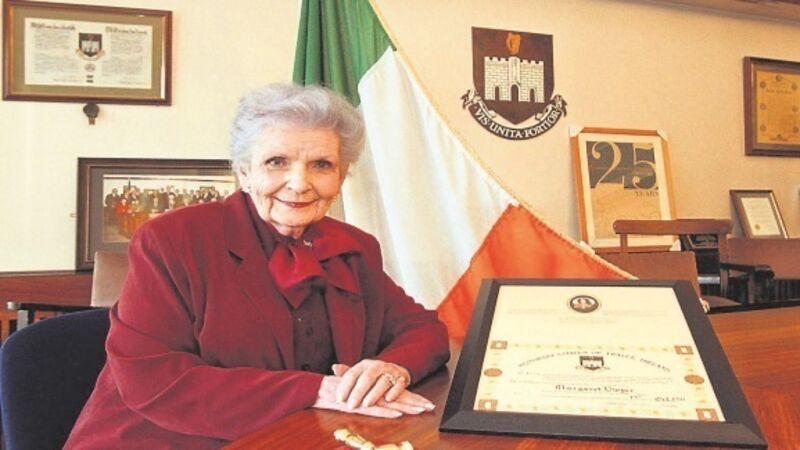From American war widow to Rose of Tralee's first lady president - Historian Ryle Dwyer remembers his mother

ALTHOUGH born and reared in the United States, Margaret Dwyer settled in Ireland with her two young sons in 1948. She felt Tralee would be an ideal place to raise the two boys on her own, especially as her American war widow’s pension amounted to three times the Irish average industrial wage at the time.
It is common now for people to migrate here from other countries, but in 1948 nearly all the migration was in the other direction. Thus she became a phenomenon and, as such, was introduced to Éamon de Valera and Seán Lemass.
















